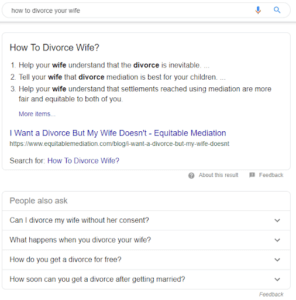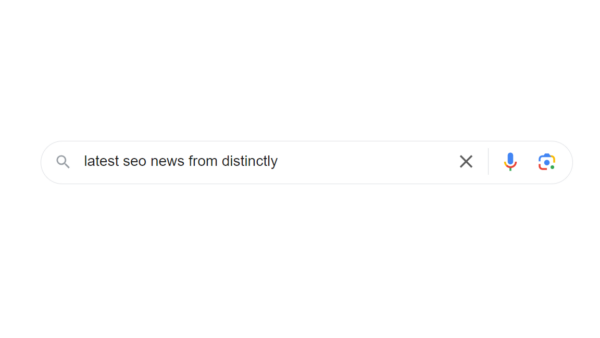How do people search for law firms online?
In March 2019 Distinctly and Conical co-produced and published the ‘Marketing Law Firms’ guide to help marketing managers navigate the latest technology, as well as offering advice on the latest online marketing techniques.
When researching and speaking to law firms it was surprising to learn that there is an industry perception that ‘their clients do not ‘shop them’ through an internet search or even through direct access to their site”. While this may be true to an extent, search data from Google shows that, before seeking out legal advice from a professional, people often do extensive research to understand everything from their legal rights to processes involved.
Understanding user Journeys
Like online marketing for any other vertical such as travel, insurance and some ecommerce products, it’s important that law firms understand how potential clients seek out legal advice and services on the web, particularly for consumer law.
By understanding how users behave online, you can create targeted content that drives traffic from organic search to improve overall SEO performance, and more importantly, capture potential clients at the beginning of their journey and raise awareness of your brand. This will ensure that your content is in the right place, at the right time – when they are searching. Google calls these Micro-moments.

A good place to start is by deep diving into Google search data and identifying what information people are looking for. Search query data can show us what content people who are potentially ‘in-market’ for legal services search for and can surface their intent, creating new opportunities for law firms to engage and create compelling content. Think of search data as user group data, just at scale.
For example, search data shows us that someone who is considering divorce may start their journey by conduction informational searches. The below image shows a sample set of search terms taken from Google Keyword Planner for the divorce search category.

Good for People = Good for SEO
Although terms like ‘divorce’ and ‘divorce UK’ have the highest search volumes, the competition is high and the likelihood of appearing in the top spot on Google without having supporting content is low. This is because Google values user experience and relevancy. The more relevant you are, the more expertise you demonstrate and the more trust you build the more your overall SEO performance will improve.
Creating informational content that caters to these search terms not only improves your SEO, but also increases your brand awareness. Driving traffic to your website for informational queries often results in gaining a new client.
Creating content targeted at those in early research stages can also result in appearing for the quick answers box (position 0 in SEO terminology).

Our data shows that these quick answers results receive click through rates of more than 40%. This is impressive considering that CTRs for standard position one organic results can be anywhere between 2-20%, depending on the vertical, the amount of PPC ads and the device being searched on, as well as increasingly personal assistants such as Google Home and Amazon Alexa.
Industry studies show that currently 80% of the voice results returned on Google Assistant devices come from the quick answers box, providing another opportunity to capture the attention of potential clients.
Tips and considerations
- Always do keyword research – there are lots of tools available. Google Keyword Planner should always be your 1st port of call, and Answer the Public is a great tool for visualising what informational content people are searching for. This does take time, but also pays dividends when done correctly,
- Create a content plan – use the keyword research data to create a content plan with a release calendar.
- Produce ‘humanised’ content – write content in the same tone of voice that your users do. Many consumer law firms’ news and blog content appears as if it is written for themselves rather than their clients or potential clients. Use appealing imagery that doesn’t disrupt the flow of the content.
- Get to the point – structure the content in a way that makes it easy to read. Don’t pad it out, and don’t do content for the sake of content.
- Promote it – let people know it’s there by distributing the content on social media and in your newsletters
- Measure it – keep an eye on your analytics to see how it performs. If a specific post or topic is doing well, consider producing a series of content pieces along the same lines.
Regardless of the topic, it’s important to remember that you are creating content for people, not for Google. Yes, it is important to include common search phrases, but understanding how your audience behaves online and providing supporting information will not only improve your organic search visibility, it will also increase awareness of your law firm and drive new clients. For specialised support in optimising your strategy, partner with a legal digital marketing agency to maximise your results.



